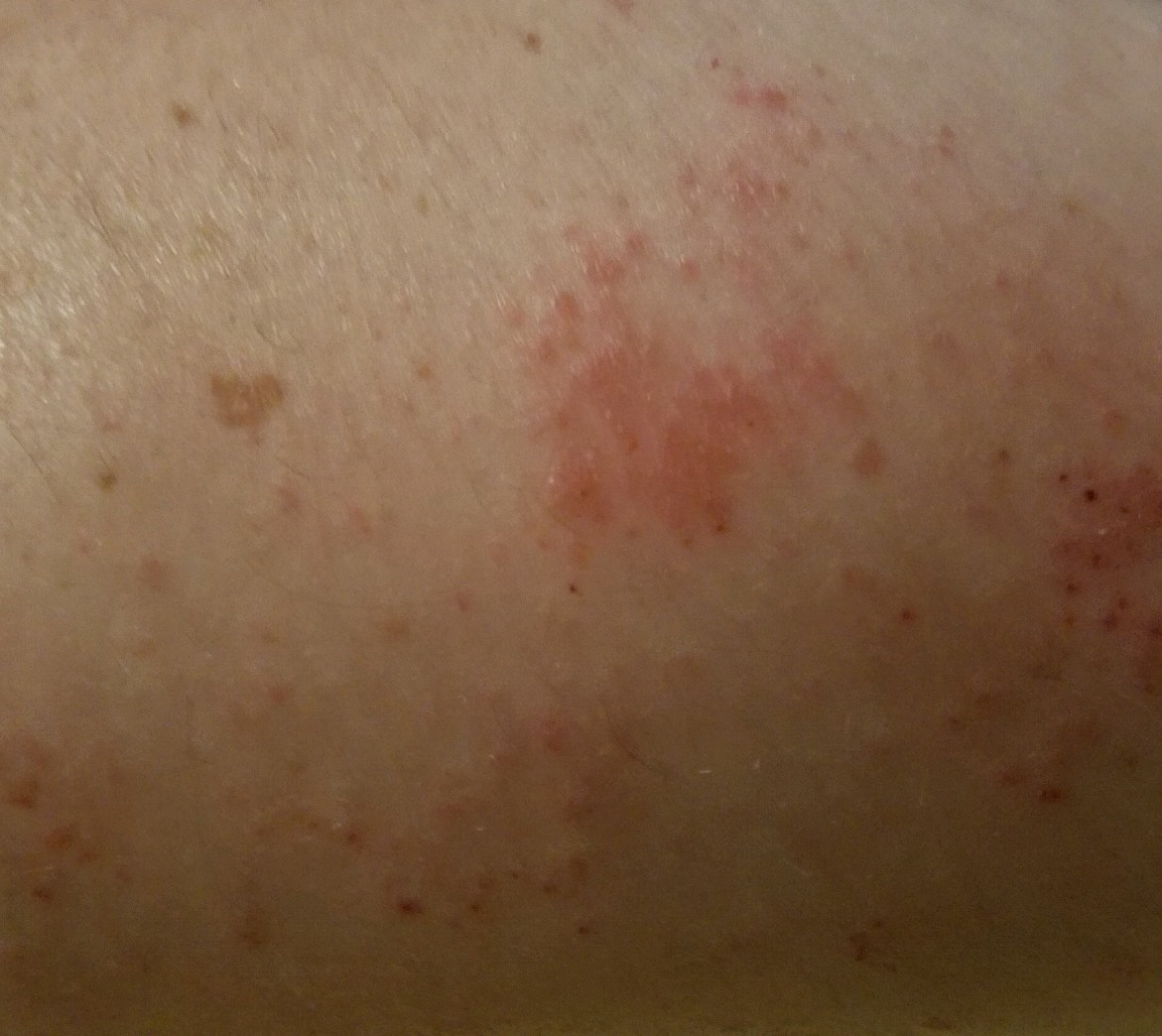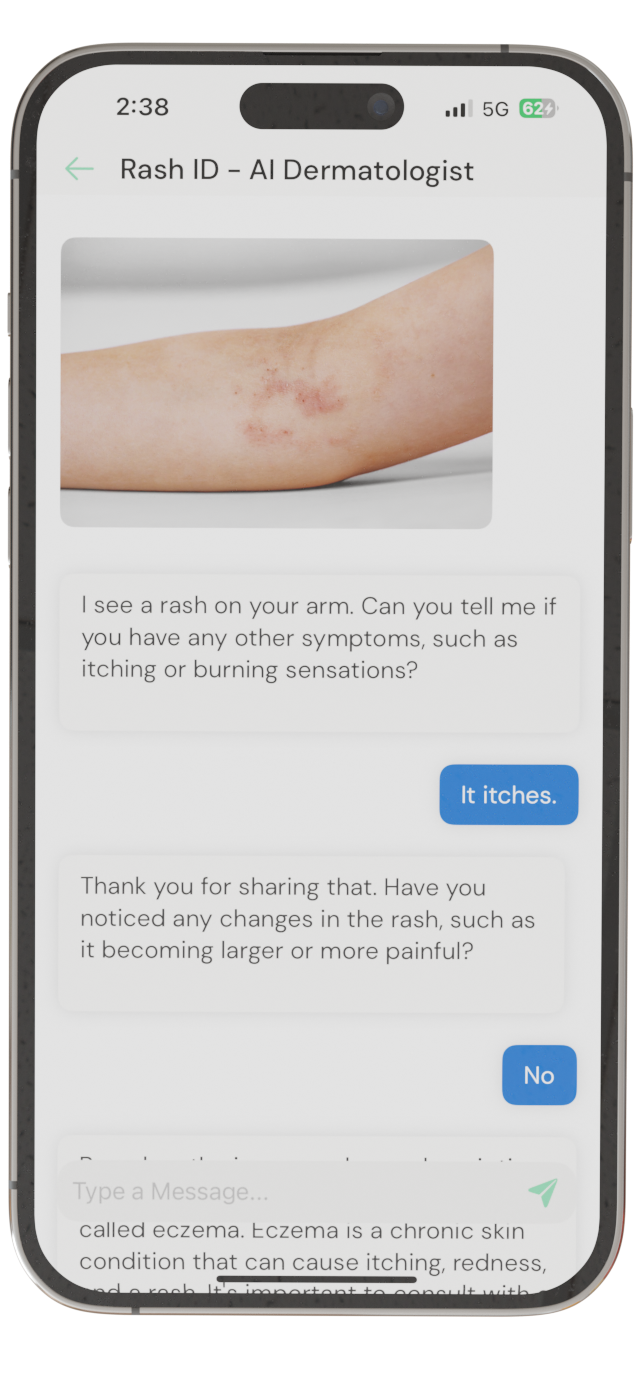
Nummular Dermatitis: A Comprehensive Guide
What is Nummular Dermatitis?
Nummular dermatitis, sometimes referred to as nummular eczema or discoid eczema, is a chronic skin condition characterized by round, coin-shaped patches on the skin. These patches can be itchy, dry, and inflamed and are often mistaken for other skin conditions such as psoriasis or fungal infections.
The exact cause of nummular dermatitis is not well understood, but it is believed to be associated with a combination of genetic and environmental factors. It is not contagious and can affect individuals of all ages, though it is more common in adults.
Recognizing Nummular Dermatitis: Symptoms and Visual Clues
Recognizing nummular dermatitis is crucial for proper diagnosis and treatment. The typical signs and symptoms include:
- Round, Coin-shaped Lesions: The most distinctive feature is the appearance of round or oval patches on the skin, leading to searches for "round red spots on skin" or "coin-like rashes."
- Itchy, Inflamed Skin: Affected areas are usually itchy and can become inflamed, causing discomfort. Searches for "itchy, circular rash" are common.
- Dry and Scaly: The skin may appear dry, rough, and scaly over the patches, prompting searches like "dry, scaly patches on skin."
- Vesicles and Oozing: In some cases, small blisters or vesicles can form within the lesions, which may ooze when scratched.
Who Gets Nummular Dermatitis?
Nummular dermatitis can affect anyone, but certain risk factors increase susceptibility:
- Dry Skin: People with naturally dry skin are more prone to this condition.
- Environmental Triggers: Exposure to harsh soaps, irritants, or extreme weather conditions can trigger flare-ups.
- Atopic Dermatitis History: A history of other forms of eczema, like atopic dermatitis, can be a contributing factor.
How Common is Nummular Dermatitis?
Nummular dermatitis is considered a relatively uncommon form of eczema. It affects both men and women, although men are often affected at an earlier age (in their 50s) compared to women (in their 60s).
Symptoms and Causes
What are the Signs of Nummular Dermatitis?
Symptoms may appear suddenly and include:
- Circular, Scaly Patches: Typically develop on legs, arms, trunk, and hands.
- Intense Itching or Burning: Can lead to scratching, worsening the condition.
- Crusted or Weeping Lesions: Due to excessive scratching or secondary infection.
Causes of Nummular Dermatitis
While the precise cause remains unclear, several factors may contribute:
- Skin Trauma: Minor skin injuries like cuts, burns, or insect bites.
- Environmental Factors: Such as cold, dry weather or contact with irritants.
- Allergens: Exposure to metals, particularly nickel, can provoke dermatitis.
Diagnosis and Tests
How is Nummular Dermatitis Diagnosed?
Diagnosis typically involves a medical history review and physical examination by a healthcare provider. Key diagnostic steps include:
- Visual Examination: Identifying the characteristic round lesions.
- Skin Scraping or Biopsy: To rule out fungal infections or psoriasis.
Management and Treatment
How is Nummular Dermatitis Treated?
Effective treatment of nummular dermatitis usually requires a combination of strategies:
- Moisturizers: Regular application to alleviate dryness and lock in moisture. Cetaphil®, Eucerin® are common options.
- Topical Corticosteroids: To reduce inflammation and itch. Options include hydrocortisone creams and more potent prescriptions for severe cases.
- Antihistamines: May help alleviate itching and improve sleep during flare-ups.
- Antibiotics: Required in case of secondary bacterial infection due to scratching.
Useful medication links:
- Hydrocortisone Cream for inflammation
- Oral Antihistamines for managing itch
Home Care Tips
- Avoid Hot Showers: Use lukewarm water and limit bathing time to prevent further drying of skin.
- Gentle Cleansers: Use fragrance-free, mild soaps to avoid irritation.
- Humidifiers: Implement a humidifier, especially during winter months, to add moisture to the air.
Prevention
How Can I Prevent Nummular Dermatitis?
While not all cases can be prevented, the following steps may help reduce the frequency and severity of outbreaks:
- Maintain Skin Hydration: Regularly apply emollients, especially after bathing.
- Avoid Irritants: Wear gloves during chores and avoid harsh chemicals.
- Dietary Considerations: Maintaining a balanced diet rich in omega-3 fatty acids may support skin health.
Outlook / Prognosis
Nummular dermatitis can be a chronic condition but can be managed effectively with proper treatment and preventive measures. Adhering to a skincare regimen and avoiding known triggers play a crucial role in minimizing flare-ups.
Living With
When Should I Call the Doctor?
Consult a healthcare provider if:
- The condition worsens or does not improve with treatment.
- Signs of infection appear, such as pus, increased redness, or fever.
- The rash significantly impacts daily life.
What Questions Should I Ask My Doctor?
Prepare the following questions for your healthcare visit:
- What could be triggering my nummular dermatitis?
- Are there any lifestyle changes that might help?
- Should I avoid specific ingredients in skincare or household products?
Additional information related to skin care can be found at sites like National Eczema Association.
Nummular dermatitis, though a persistent condition, can be effectively managed with the right approach and awareness. Working closely with your healthcare provider, maintaining skin health, and understanding your triggers are pivotal in reducing the impact of this skin condition on your life.

Identify Skin Conditions Instantly
Try Rash ID for Free